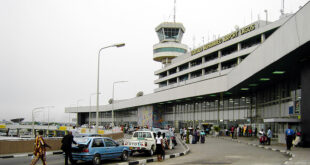Germany’s Covid-19 blanket travel warning for a large part of the world is to be replaced at the end of the month. Instead, countries will be assessed individually according to their situation.
The blanket travel warning for almost all of the 160 or so countries outside the EU and the border-free Schengen area will end on 30 September. According to a decision of the Federal Cabinet, as from 1 October assessments will be tailored to the situation in the individual countries, the German Press Agency dpa reported on Wednesday.
A spokeswoman of the Foreign Office was quoted by dpa as having said that the possibility to travel would probably change very little in practical terms. However, a differentiated system would be introduced.
“Everything will remain as it is until 30 September,” a foreign ministry spokeswoman said in Berlin on Wednesday. “From October, we will return to an individual system for each country. Travel warnings for countries with high-risk areas will continue to be issued. These could also be lifted if there were quarantine regulations, for example. In such a case, however, travel could be strongly discouraged. In other cases, “special caution” could also be advised.
READ ALSO What happens if you come to Europe with a tourist visa and claim asylum?
A travel warning is not a travel ban, but is intended to have a significant deterrent effect. However, it also has a positive side for consumers: it allows travellers to cancel bookings free of charge.
Due to the rising number of corona infections, Federal Foreign Minister Heiko Maas (SPD) had issued on 17 March a warning against tourist travel to all of the approximately 200 countries in the world. Only in June – immediately before the start of the main holiday season – were the member countries of the European Union, the border control-free Schengen area as well as Great Britain, Andorra, Monaco, San Marino and the Vatican City State exempted.
The federal and state governments appeal to all citizens, wherever possible, to avoid travel to designated high-risk countries (Risikogebiete). Due to the high incidence of coronavirus infection, the Robert Koch Institute (RKI), Germany’s centre for disease control and prevention, classifies some countries as high-risk countries. The federal and state governments advise against travelling to such countries. If possible, please check before your planned trip whether a travel warning or classification as a high-risk area exists for your destination. For the current travel and security advice from the German Foreign Office, please visit here.
Femi Awoniyi
READ ALSO Covid-19: Newly updated government directives in Germany
 THE AFRICAN COURIER. Reporting Africa and its Diaspora! The African Courier is an international magazine published in Germany to report on Africa and the Diaspora African experience. The first issue of the bimonthly magazine appeared on the newsstands on 15 February 1998. The African Courier is a communication forum for European-African political, economic and cultural exchanges, and a voice for Africa in Europe.
THE AFRICAN COURIER. Reporting Africa and its Diaspora! The African Courier is an international magazine published in Germany to report on Africa and the Diaspora African experience. The first issue of the bimonthly magazine appeared on the newsstands on 15 February 1998. The African Courier is a communication forum for European-African political, economic and cultural exchanges, and a voice for Africa in Europe.



































